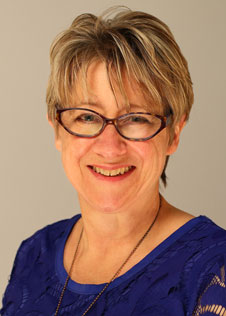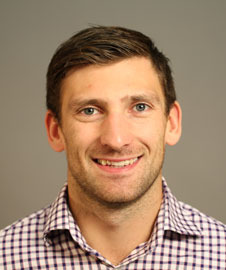 Friday 13 January 2017 9:01am
Friday 13 January 2017 9:01am
Associate Professor Louise Signal
Watching televised sport means watching advertisements for alcohol, say researchers from the University of Otago, Wellington (UOW).
Associate Professor Louise Signal from the Department of Public Health at UOW says that children should be protected from alcohol marketing by banning alcohol sponsorship of sport.
The study, published today in the NZ Medical Journal, assessed the nature and extent of alcohol sport sponsorship over a summer of televised sport in New Zealand. The researchers analysed five major sporting events televised in the summer of 2014/15, and found that alcohol sponsorship is prevalent in international sport on NZ television.
“Due to alcohol sponsorship of sport, New Zealanders, including children, were exposed to up to 200 ads per hour they watched televised sport, and people watching football and tennis saw alcohol ads for almost half of each game,” says Associate Professor Signal.

Tim Chambers, Assistant Research Fellow
Marketing drives alcohol consumption by encouraging drinking. Alcohol causes considerable harm, including violence, injury, mental health problems and cancer. It contributes to over five percent of deaths in New Zealand and costs the country more than $5billion a year.
“More than a third of young New Zealanders 'binge drink' (six or more drinks on one occasion), one in five binge drink every week,” Associate Professor Signal says.
“Sport sponsorship bypasses traditional marketing and gets around the current advertising codes,” says Associate Professor Signal. “Children see their sporting heroes linked with alcohol. In New Zealand we have already agreed that alcohol should not be marketed to children by traditional marketing. Why should we allow it with sports sponsorship?”
“Rugby league and cricket watchers were not immune, although cricket fans were protected by the absence of a major alcohol sponsor in the Cricket World Cup,” she says.
The research supports high level advice to government to ban alcohol sponsorship of sport. “The 2014 Ministerial Forum on Alcohol Advertising, chaired by Rugby League legend Graham Lowe, argued for banning alcohol sponsorship in sport. We are still waiting for a Government decision on this advice.”
For the study, the researchers chose matches of popular sports with large audiences:
- Rugby League 9s test match (rugby league, women, played in Auckland),
- Australian Open Final (tennis, men, played in Melbourne),
- Asian Cup Final (football, men, played in Sydney),
- Football Ferns International friendly (football, women, played in Chicago) and
- ICC (International Cricket Council) ODI (One Day International) Cricket World Cup Final (cricket, men, played in Melbourne).
“We observed alcohol brands during each of these televised events,” says Tim Chambers, Assistant Research Fellow at the University of Otago, Wellington, currently on a Fulbright Scholarship at Harvard University.
“Audiences were exposed to between 1.6 and 3.8 alcohol brand exposures per minute. Alcohol brands were visible between 42 and 777 times across the games examined. For three out of the five events alcohol brands were visible for almost half of the game,” he says.
“There are many healthy sponsors of sport that could replace alcohol, for example ASB Bank sponsored the ASB Tennis Classic this month. What is needed is the will of both sporting organisations and politicians,” Signal says. “We call upon the government and sporting organisations to support parents to protect their children from alcohol-related harm,” Associate Professor Signal says.
This summer major televised sports are sponsored by brands including Jacob's Creek, Woodstock and Heineken.
The World Health Organization also calls for regulation of alcohol sponsorship because of strong evidence of the effectiveness of regulation in reducing alcohol-related harm.
For further information, contact:
Associate Professor Louise Signal
Department of Public Health
University of Otago, Wellington
Email: louise.signal@otago.ac.nz
A list of Otago experts available for media comment is available elsewhere on this website.
Electronic addresses (including email accounts, instant messaging services, or telephone accounts) published on this page are for the sole purpose of contact with the individuals concerned, in their capacity as officers, employees or students of the University of Otago, or their respective organisation. Publication of any such electronic address is not to be taken as consent to receive unsolicited commercial electronic messages by the address holder.